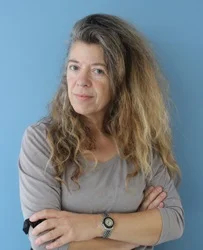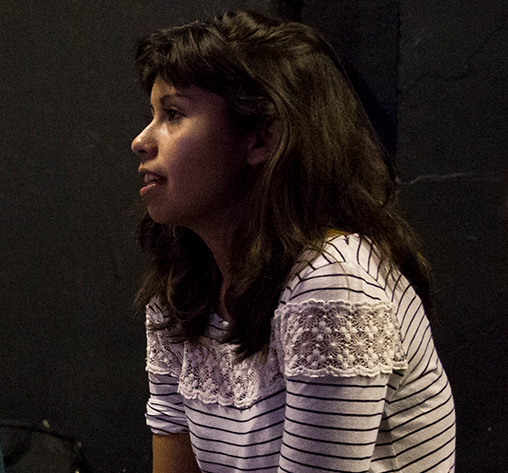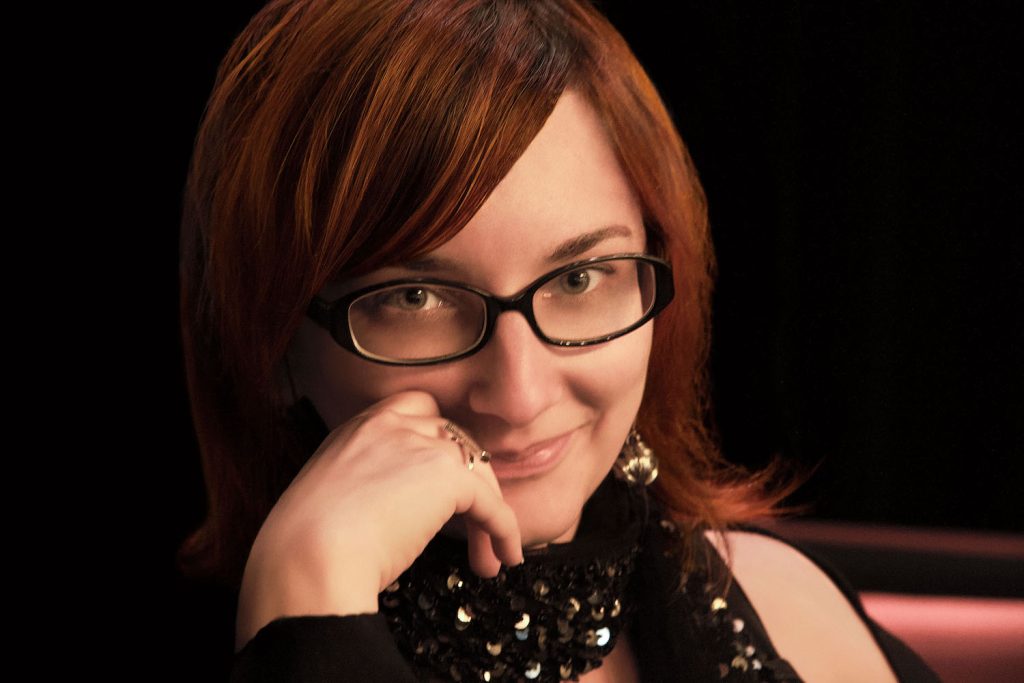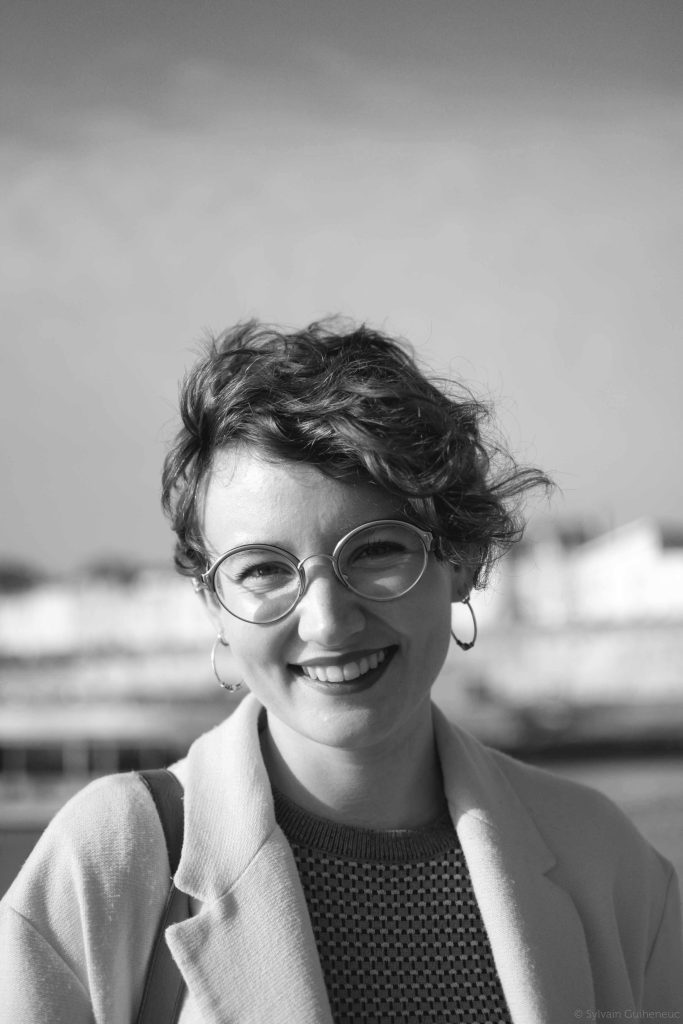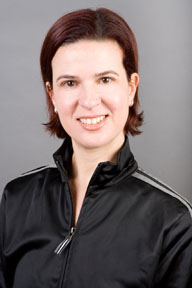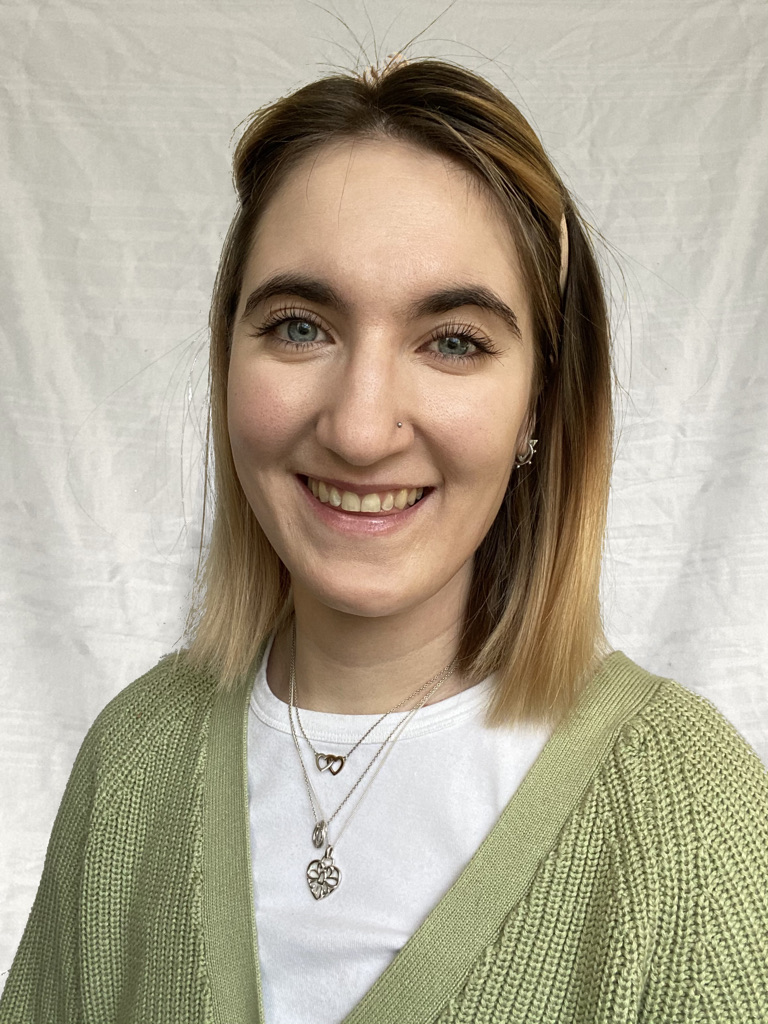9.45-11.00am: C-DaRE
What can dance do for inclusion and intersectionality? A conversation on process and practice
Chairs: Vipavinee Artpradid and Kate Marsh
Panelists: Sarah Whatley, Rosa Cisneros and Jonathan Burrows
Dance is messy, reflective and always ‘in process’; it encourages people to be self-critical, to be in close proximity, and to question. Therefore, what can dance do for inclusion and intersectionality? This conversation will explore how dance research can contribute to the embodied, somatic, and corporeal understanding of these concepts.
Where are we now and where do we want to be? How can dance, movement, and somatic practices challenge dominant understandings of intersectionality and inclusion? How does the complexity of language limit us? How can dance and work with(in) the body attend to that which discussion and language cannot? In what ways can embodied, somatic, and corporeal research into inclusion and intersectionality contribute to deeper understandings of the concepts?
It is important for the dance sector to consider what dance has to offer to the thinking, discourse, and practices around inclusion and intersectionality. This conversation space will interrogate the principles or values that underpin understandings of inclusion and intersectionality, sharing perspectives on the roles and responsibilities involved in navigating these concepts in theory and practice.
Sarah Whatley is Director, Centre for Dance Research. Her research focuses on the interface between dance and new technologies, dance analysis, somatic dance practice and pedagogy, and inclusive dance. The AHRC, the Leverhulme Trust, Wellcome Trust and the European Union fund her current research, which is broadly focused on the impact of digital technologies on tangible and intangible cultural heritage. She led the AHRC-funded Siobhan Davies digital archive project, RePlay, and has worked with Davies on other artist-led research projects. She is founding Editor of the Journal of Dance and Somatic Practices and sits on the Editorial Boards of several other Journals.
Sarah supported the development of the Routledge Performance Archive in her role as Academic Consultant: Digital Environment. She was an assessor for the 2014 REF exercise (Panel D35) and is a Strategic Reviewer and member of the AHRC Peer Review College. She is also an Evaluator for the European Commission.
Rosemary (Rosa) Kostic Cisneros is a researcher, dancer, choreographer, sociologist and curator who works at the Centre for Dance Research (Coventry University) and works closely with the RomArchive, European Hip Hop Studies Network and many NGOs. Cisneros has developed the Romani Dance History course with the Barvalipe University run by ERIAC. She leads various EU-funded projects which aim to make education and arts accessible to vulnerable groups and ethnic minorities, and part of cultural heritage projects that bring dance, site and digital technologies together. Her PhD is in Sociology with a focus on Roma women, intersectionality, dialogic feminism and communicative methodologies and was awarded Summa Cum Laude. She has started her own production company, RosaSenCis Film Production Co., which worked on the Society for Dance Research Oral History Project and also ran the Dancing Bodies in Coventry project. Cisneros’ dance films have screened in the UK, US, Colombia, Mexico, Greece, Cyprus and Germany and her medium-length documentary won best documentary from the UK in 2016. She has also managed major EU-Funded projects and local City of Culture Partnership projects and organised the Hip Hop Talking Back: artists and researcher curated conversations series at C-DaRE. She sits on academic Journals as an editor and those include the Journal for Embodied Practices, International Journal of Romani Studies and OneDance UK’s HOTFOOT Online magazine.
ORCID ID: https://orcid.org/0000-0002-8169-0642
University Profile: https://pureportal.coventry.ac.uk/en/persons/rosamaria-kostic-cisneros
Jonathan Burrows is a choreographer whose main focus is an ongoing body of pieces with the composer Matteo Fargion, with whom he continues to perform around the world. The two men are co-produced by PACT Zollverein Essen and Sadler’s Wells Theatre London. His ‘A Choreographer’s Handbook’ has sold over 15,000 copies since its publication in 2010, and is available from Routledge Publishing. Burrows is currently an Associate Professor at the Centre for Dance Research, Coventry University.
Vipavinee Artpradid completed her PhD titled ‘Dance, disability, and the pluralistic audience: A phenomenographic engagement’ at the Centre for Dance Research (C-DaRE), Coventry University, and is a former C-DaRE Postdoctoral Research Fellow. She is currently Research Manager for the charity Sporting Equals, working to promote ethnic diversity in sport and physical activity. She recently published the short article ‘Integrated and Inclusive’ in the Routledge Companion to Audiences and the Performing Arts. She will also be joining the Board of Trustees of Birmingham LGBT at the end of November 2021.
Kate Marsh is a research assistant in the Centre for Dance Research at Coventry, a contemporary dancer and thought leader from Peterborough. She has performed and taught nationally and internationally. She has projects with arts organisation Metal on a programme called Change Makers, and works closely with Candoco on their outreach programme.
11.15 am-12.30 pm: SDR Panel
Panel Chair: Sinibaldo De Rosa
Panelists: Thea Stanton, Angela Conquet, Marion Quesne
Curated by the Society for Dance Research, this panel brings together three PhD researchers based in France, the UK and Australia, each questioning notions of inclusion in diverse dance styles, performative formats and curation.
Analysing biographies of Lindy Hop dancers in the 1930s as well as questionnaires distributed among more than 200 contemporary practitioners, and informed by her experience as a Lindy Hop instructor, Marion Quesne shows howcontemporary participation in this form tends to reproduce normative values of whiteness and straightness although the origins of this style in the United States at the end of the 1920s defied segregationist laws and hetero-normativity.
Drawing on her own indigenous heritage and informed by critical phenomenology and post human feminism, Thea Stanton reframes the blossoming of immersive performance formats by addressing concerns regarding access, consent, borders and power. Through a choreographic embodied lens, her paper proposes an understanding of immersion that is capable to nurture decentralisation of decision-making, intersubjective awareness and an ethics of respect and care.
Finally, by suggesting that homogenised understandings of ‘contemporary dance’ were built on troubled colonial histories and flawed dance conventions, categorisations and circulations of the Global North, Angela Conquet will offer a provocation on the agency and responsibility of dance curators in undoing eurocentrism and decolonising corporeality. Her essay thus asks what critical, politically responsible, situated and sustainable dance curation might look like.
Thea Stanton is an indigenous Chilean British researcher, choreographer and teacher. She is currently a PhD candidate at the University of Chichester where she is exploring the notion of an immersive choreographic practice.
With her collective Spun Through Shadows, she has produced and choreographed large scale immersive events at The Royal Academy of Arts, TripSpace Projects and the Royal College of Music. She has presented work at Turner Margate, The Place, Spontaneous Combustion, Walmer Yard and Edinburgh Fringe. Most recently she has also collaborated with Architects Stanton Williams on a site responsive work for Milan Design Week.
In addition to working part time at RCA Helen Hamlyn Research Centre of Inclusive Design and Creative Leadership, Thea has lectured, supervised and delivered workshops on her immersive practice and arts advocacy work at Trinity Laban, Roehampton, Rose Bruford College Chichester University, Arts University Bournemouth, Goldsmiths University, Edinburgh Fringe/Fringe Central and for Northern Stage’s emerging artist festival ‘NORTH’.
Most recently Thea has presented papers on her research at Our Dance Democracy 2 Conference and the TaPRA 2021, following which she was invited to become a convenor of the TaPRA Bodies and Performance Working Group.
Angela Conquet is a Melbourne-based independent dance curator, consultant and editor, working across and within a multiplicity of disciplines, contexts and territories, locally and globally. Her 20-year career spans two continents, Europe and Australia and brings curatorial, artistic and executive expertise in performing arts, festivals, arts leadership, publishing, arts policy and advocacy. She is the former Artistic Director/CEO of Dancehouse Melbourne (2011-2020). Prior to relocating to Australia in 2011, she led the dance AIR programs of Mains d’Oeuvres, Paris’ largest independent arts centre. She is currently the Managing Editor of Dancehouse Diary, and the Guest Curator of Dance in Vancouver festival 2021. She is a member of AND+/Asia Network for Dance, of the Green Room Awards Dance Panel and a recent fellow of the Saison Foundation Japan. She is currently undertaking a PHD in dance-specific curatorial practices at the University of Melbourne. She considers art and culture as a socio-political practice to activate imagination, creativity and change.
Marion Quesne is a PhD student at UVSQ (Université Versailles-St-Quentin). She is working on a doctoral thesis entitled “social codes and identity roles in Lindy Hop : stories of transgression”. Recently she has taken part in two workshops related to inclusion and intersectionality:
Gender Moves organized by LOVA (The Netherlands Association for Gender Studies and Feminist Anthropology) at the University of Leiden, on May 10, 2019. The paper was entitled : « Lindy Hop : transgression or conformity ? ».
Américanisation par les Arts organized by CHCSC at University Paris Saclay, on March 9, 2021. The paper was entitled: « S’approprier une danse américaine : l’exemple du Lindy Hop ? ».
She is also a Charleston, Authentic Jazz and Lindy Hop dancer and instructor.
1.30 – 2.45pm: Age and Inclusion
Panel Chair: Bethany Whiteside
Panelists: Chloe Hillyar, Aline Nogueira Haas , Louisa Petts
The Age and Inclusion panel has an explicit focus on the experiences and needs of older dancers and dancers experiencing pregnancy and motherhood.
Through semi-structured interviews with dancers and dance artists, Louisa Petts looks at the psychosocial experience of older adults engaging in community dance classes. Different dance genres and varying levels of dance familiarity and experience are explicitly included to explore the unique impact had on health and wellbeing and a sense of ‘belonging.’
Aline Haas et al present Playful Living, a dance, clowning and storytelling project resulting from collaboration between the social care sector and Brazilian universities to address the need for social and racial equity among older dancers. Digital accessibility, often a barrier to inclusion, was key to the project’s success during Covid-19.
Chloe Hillyar’s current PhD research is focused on pregnancy and motherhood as experienced by professional dancers. Hillyar argues that pregnant dancers becomes ‘othered’ and the need for a dedicated system of training to ensure safe practice. Themes of the aesthetic, inclusitivity, identity, and discrimination shape this presentation on maternity experiences.
Having graduated with First-Class Honours, Chloe Hillyar trained at a top UK Dance Conservatoire for three years, before embarking on a further three years as a professional dancer.
She’s gained international experience performing in Madrid, Mallorca and Bulgaria. Within the UK, Chloe has worked with artists from Beijing Dance Academy, Hungary, Hong Kong, Spain and Nunavut. She has performed for Channel 4, Royal Opera House and The Place.
Chloe is a committed feminist and assisted the set-up and running of the newly founded charity AWA DANCE (Advancing Women’s Aspirations with Dance). After that, she founded The Pregnant Dancer research project, funded by Arts Council England.
She was offered an unconditional offer to further her research as a PhD student at Queen’s University Belfast. Chloe’s research area is at the intersection of dance and maternity. Her PhD investigates experiences of maternity in dance, and how a dedicated system of training might ensure safe physiological practice for freelance, maternal dancers. The study seeks to apply its research findings so it may support the normalization of the aesthetic and presence of maternal dancers within a dance training context and thus contribute to normalizing their participation in a professional, performance context.
Aline Nogueira Haas
BSc(Hons) in Physical Education, and PhD in Sports Science. Dance Teacher, Contemporary dancer and Pilates instructor. Postdoctoral Research Assistant at University of Wolverhampton, Walsall Campus. Associated Professor in Dance at School of Physical Education, Physiotherapy and Dance, and at Postgraduate program in Movement Science, at Federal University of Rio Grande do Sul (UFRGS), Brazil. Lead of the “Research Group in Arts, Body and Education”. Research focus on dance science and dance and health, including Parkinson’s disease, Stroke Patients and Elderly people.
Gabriela Maria Lima Santos (presenter)
Dance undergraduate student at School of Physical Education, Physiotherapy and Dance in the Federal University of Rio Grande do Sul (UFRGS), Porto Alegre, Brazil. Dancer, dance teacher and choreographer. Certified in Performing Art by UCLA. Intern student of the “Playful Living Project” (Atlantic Institute Solidarity Grant). Research focus on dance science and dance and health, including Stroke Patients and Elderly people.
Authors of the presentation
Lenisa BrandãoSpeech Therapist and Clown Apprentice. Senior Atlantic Fellow for Equity in Brain Health. PhD in Psychology and Postdoc in Psycholinguistics. Associate Professor in Language and Cognition at the Department of Health and Human Communication in the Psychology Institute of the Federal University of Rio Grande do Sul (UFRGS), Porto Alegre, Brazil. Leader of the Playful Living Project (Atlantic Institute Solidarity Grant) and of the research study Exploring the power of active clowning in aphasia intervention (Alzheimer’s Society’s Pilot Award for Global Brain Health Leaders).
Carla VendraminResearching dance teaching artist and community dance practitioner. PhD student at UNICAMP – University of Campinas, Brazil. Member of Practice as Research study group at UNICAMP. Master degree in Choreography at Middlesex University, London, UK. Graduated in physiotherapy at FEEVALE – University of Vale dos Sinos, Brazil. Lecturer in Dance at School of Physical Education, Physiotherapy and Dance (ESEFID) of the Federal University of Rio Grande do Sul (UFRGS), Porto Alegre, Brazil. Research focus on dance with mix-ability and intergenerational groups, dance improvisation, clown, ecology, eco-somatic and eco-performance.
Kaueh Gomes BastosDance undergraduate student at Federal University of Rio Grande do Sul (UFRGS), Porto Alegre, Brazil. Dancer, actor, producer. Intern student of the “NeparPsi – Centre for Extension and Anti-Racist Research”. Producer of the “Black week ESEFID/UFRGS”.
Eliamary Cristiane Teixeira da Silva BA in Dance. Dance teacher and choreographer. MSc candidate in Sports Science at Federal University of Rio Grande do Sul (UFRGS), Porto Alegre, Brazil. Member of the “Research Group in Arts, Body and Education” (GRACE). Research focus on dance Science and dance and health, including Parkinson’s disease and Elderly people.
Gabriela Maria Lima Santos (presenter)Dance undergraduate student at School of Physical Education, Physiotherapy and Dance in the Federal University of Rio Grande do Sul (UFRGS), Porto Alegre, Brazil. Dancer, dance teacher and choreographer. Certified in Performing Art by UCLA. Intern student of the “Playful Living Project” (Atlantic Institute Solidarity Grant). Research focus on dance science and dance and health, including Stroke Patients and Elderly people.
Raquel da Silva SilveiraPhD in Social and Institutional Psychology. Adjunct Professor in Social and Institutional Psychology at the Department of Social and Institutional Psychology in the Psychology Institute of the Federal University of Rio Grande do Sul (UFRGS), Porto Alegre, Brazil. Research focus on racism, race relations, whiteness and storytelling. Leader of the community outreach projects “NeparPsi – Centre for Extension and Anti-Racist Research”, and “Cepac – Collective of Extension and Anti-Racism Research” at Federal University of Rio Grande do Sul (UFRGS), Porto Alegre, Brazil.
Louisa Petts is a PhD candidate at the Centre for Dance Research at Coventry University. She is the recipient of the Arts and Humanities Research Council studentship award offered by Midlands4Cities Doctoral Training Partnership. Her research interests broadly concern community dance for the psychosocial health and wellbeing of older adults, people living with dementia and their caregivers. Currently, her research queries whether community dance classes in different dance genres all offer entirely unique experiences of wellbeing and meaning for older adult populations.
Louisa studied at Trinity Laban Conservatoire of Music and Dance and was a recipient of the Trinity Laban Dance Award Scholarship. She graduated with an MSc in Dance Science in 2019 with Distinction. Prior, Louisa studied at the University of Roehampton, achieving First Class Honours, and receiving the prize for Best Dissertation in BA Dance Studies in 2018.
Louisa has worked as a community dance artist delivering dance classes to those living with dementia in assisted living homes and people with Parkinson’s disease. She currently works as a dance science lecturer with bbodance and as an editorial assistant for the Journal of Dance and Somatic Practices. Louisa is also part of the site-specific research project ‘The Shape of Sound’ led by artist-researcher Petra Johnson, working in collaboration with Vipavinee Artpradid, and researchers in the Centre for Dance Research (C-DaRE). It is an artist impression of hair cells inside the cochlea of the inner ear combined with dance artists exploration of deep listening and movement.
3.15 – 4.15: Reflections on the conference and organisation – Jane, Angeline
Further responses post symposium will be provided by Aby Watson and Kate Marsh.
You can find out about Michelle, Aby and Kate on the contributors page.
